Best Cat Food For Senior Cats – Changing Your Old Cats Diet
Contents of Article
You are probably familiar with the saying, “you are what you eat”. But did you know that it doesn’t apply just to humans – it applies to cats as well. When it comes to determining the length and quality of your cat’s life, there is no bigger determining factor than his diet.
Like all living things, cats require a certain formulation of nutrients in their diets and if their food doesn’t provide those nutrients, the cat will not thrive and it may develop any number of medical conditions. Do yourself and your old cat a favor by feeding him the best food for older cats.
You should have no trouble understanding the importance of quality in your cat’s diet, but you may be a little confused when it comes to the specifics of nutrition for senior cats versus kittens and young adults. In the same way that you may have been forced to change your eating habits as you got older, the dietary needs of aging cats change as well.
Cats have the same basic nutritional requirements throughout their lives, but the ratios may change and certain nutrients may become more essential. In this article you will receive an introduction to the nutritional needs of cats in general as well as some specific information about nutritional needs for senior cats. You will also receive tips for choosing a quality senior cat food as well as recommendations for some of the top brands that offer senior cat food formulas to help you get started.
Quick Look : Top 5 Best Senior Cat Foods
Understanding the Nutritional Needs of Cats
Before you can understand the particulars of senior cat nutrition you need to have a basic understanding of the nutritional needs for cats in general. As you may already know, cats are obligate carnivores which means that their bodies are designed to derive maximum nutrition from animal products. The long and short of it is that cats need to eat meat. If you take a look at the ingredients list for a commercial cat food product, however, you will notice that there are a lot of ingredients listed – not just meat. This is because cats still need a blend of different macronutrients and micronutrients in order to thrive – this is true for all living things.
The three main macronutrients that any animal (or human) needs are protein, fat, and carbohydrate. Protein is the most important nutritional consideration for cats because it provides the amino acids the cat’s body needs to produce enzymes, hormones, and antibodies – they are also the building blocks of healthy muscle and tissue. Protein is especially important for kittens because it helps to fuel their growth and development but it is still essential for adult and senior cats because it helps to maintain lean muscle mass. The amino acids that cats need are divided into two categories: essential and non-essential. Non-essential amino acids are those that your cat’s body is able to synthesize on its own. Essential amino acids are those that cannot be synthesized and which must come from the cat’s diet in the form of protein.
A complete protein is a protein source that provides all of the essential amino acids a cat needs – these include meats, fish, poultry, and eggs. Incomplete proteins may only contain some of the essential amino acids – these include plant materials like grains, legumes, and vegetables. Plant products are not necessarily bad for cats in all cases but there are two important things to consider. First, you already know that they are incomplete proteins. Second, your cat’s body simply isn’t designed to digest carbohydrates. In the wild, the only plant material cats eat comes from the stomach contents of their prey and it has already been partially digested. Think about that when reading the ingredients list for commercial cat foods that are high in carbohydrates.
After protein, fats are the second most important nutritional consideration for cats because they provide a highly concentrated source of energy as well as essential fatty acids. These fatty acids help your cat’s body transport and utilize other nutrients and they also play a role in maintaining your cat’s metabolism and his immune system. Similar to proteins, fats should come from animal sources like meat, fish, poultry and eggs as well as fish oils and animal fat. Chicken fat, for example, might not sound like a very appetizing ingredient to you but it is loaded with essential fatty acids as well as other vitamins and minerals your cat needs. In terms of minimum nutritional requirements, kittens need at least 8% fat in their diets and adult cats need at least 5%. This is compared to a minimum protein requirement around 35% for kittens and lactating or pregnant females and a minimum of 26% for adult cats.
While cats need a certain amount of protein and fat in their diets to thrive, they have no nutritional need for carbohydrate – there is no minimum percentage of carbs that should be present in your cat’s diet. A cat’s digestive system simply isn’t designed to process plant material and it is possible for a cat to get all of the nutrition he needs from animal sources. You may be wondering, then, why so many pet food manufacturers include carbohydrates in their formulas. One of the main reasons pet food manufacturers use carbohydrates like corn, wheat, and soy ingredients is because they are cheaper than animal products – it is that simple. Many manufacturers bulk up their products using plant proteins and carbohydrates to keep their prices down, taking advantage of the fact that many cat owners do not have more than a basic understanding of their cat’s nutritional needs.
There is a great deal of controversy surrounding the use of carbohydrates in commercial cat food products. Some nutritionists believe that a certain amount of carbohydrate is necessary for domestic felines to support healthy digestion and to provide essential vitamins and minerals. It is true that there are some carbohydrates which are more digestible for cats than others (think gluten- and grain-free options like sweet potato versus wheat flour or ground corn) but even if these ingredients do provide some nutritional benefit, they are really only appropriate in very small quantities. Whereas cats have a minimum requirement for both protein and fat in their diets, carbohydrates have a maximum value around 3% that can be considered acceptable.
In addition to the three main macronutrients, cats also require certain micronutrients (vitamins and minerals) in their diet, as well as plenty of water. Vitamins are necessary for normal growth and healthy bodily function, plus they help to regulate your cat’s metabolism. Some of the most important vitamins your cat needs include Vitamins A, D, E, and K as well as Vitamin C and B-complex vitamins. Minerals help to support the cat’s natural pH level in the body and they help with nearly every physiological reaction that takes place in the body. The most important minerals for cats include calcium, cobalt, chromium, fluorine, iodine, potassium, iron, manganese, selenium, magnesium, and zinc, among others.
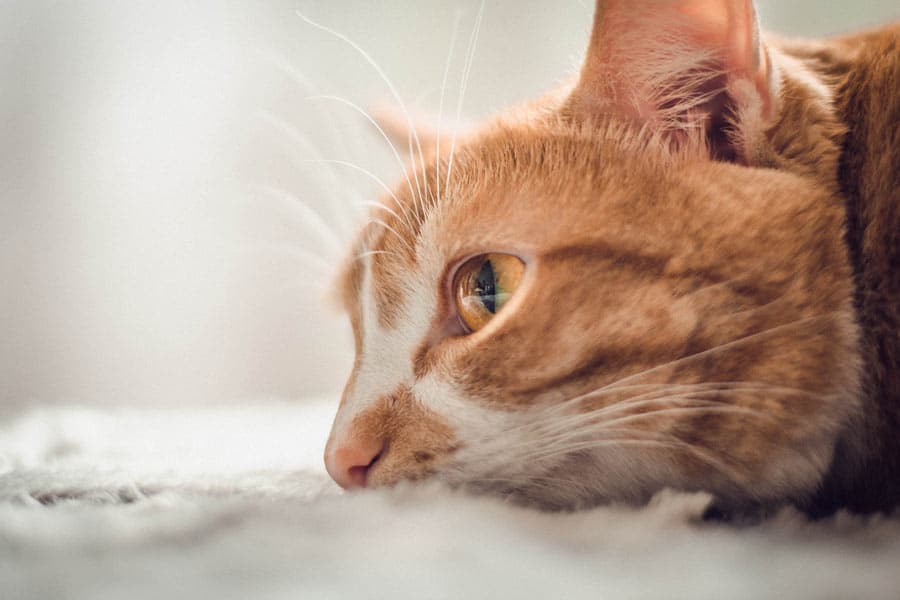
Special Dietary Requirements for Senior Cats
As your cat approaches seniority, his needs will change. Not only will he start to slow down physically, but his metabolism may start to slow as well. For some cats, the metabolism slows down significantly and the cat will put on a significant amount of weight simply by eating the same diet he has always followed. For other cats, however, the opposite may be true – many senior cats also have problems with digesting and absorbing nutrients which can lead to unhealthy weight loss. As a general rule, a cat is considered a senior cat once he reaches 7 years of age. After age 7, the cat’s daily energy requirements generally declines until he reaches the age of 10 or 11 – at this point, his energy needs may pick back up again through the rest of his lifespan. Each cat is different, however, so you will need to keep a close eye on your cat’s eating habits and his weight as he ages.
According to a national study, more than half of all cats over the age of 15 were considered to be underweight. In many cases, this is due to changes in the cat’s body regarding nutrient digestibility. As they get older, many cats have trouble digesting carbohydrates, fats, and proteins. Their daily requirements for these nutrients may still be the same, but the body is no longer able to utilize the nutrients as efficiently. To deal with this problem, you may have to change the type of food you are feeding your senior cat to ensure that the proteins, fats, and carbs he is eating are highly digestible. It is never a good idea to restrict protein intake for older cats unless there is an underlying medical issue.
Another factor that can contribute to weight loss in older cats is a reduced ability to smell and taste. If the cat cannot taste the food or smell it, he may not have any interest in eating it. Older cats that have dental problems may also have trouble chewing solid foods which can lead to decreased calorie intake and unhealthy weight loss. Some cat owners try soaking their cat’s kibble in broth to add flavor while also softening the pieces. Others try switching their cats to canned food because it is generally more palatable and easier to chew. Canned foods also tend to be more calorie-dense than dry foods which can be a benefit for senior cats that need to gain weight.
One thing you might hear about nutritional needs for older cats is an increased need for dietary fiber. It is important to remember, however, that the cat’s body is not designed to process fibrous plant materials so be sure that any carbohydrates your cat eats come from highly digestible sources. Not all senior cats need to increase their fiber intake, either – it is most common in cats that have particular medical conditions like diabetes, colitis, or frequent constipation. In some cases, cats that have colitis or inflammatory bowel disease have trouble digesting proteins and fats as well as carbohydrates. Kidney disease is also fairly common in older cats and it may require a switch to more digestible forms of protein so the kidneys do not have to work so hard in breaking them down.
Many cat owners wonder as their cats start to get older whether they need to introduce any nutritional supplements into the diet. As long as your senior cat food is properly formulated, this is probably not necessary. There are, however, certain diseases which are common in older cats that can impair the cat’s ability to absorb and utilize certain nutrients. For example, cats with various bowel diseases may have trouble absorbing vitamin B12 and could benefit from a supplement. Be sure to check with your veterinarian to identify any symptoms of potential nutritional deficiencies in your cat and to ask about nutritional supplements. Be very careful when using over-the-counter supplements for cats because there is a risk for overdose with certain nutrients, especially if you use human supplements because cats metabolize things differently.
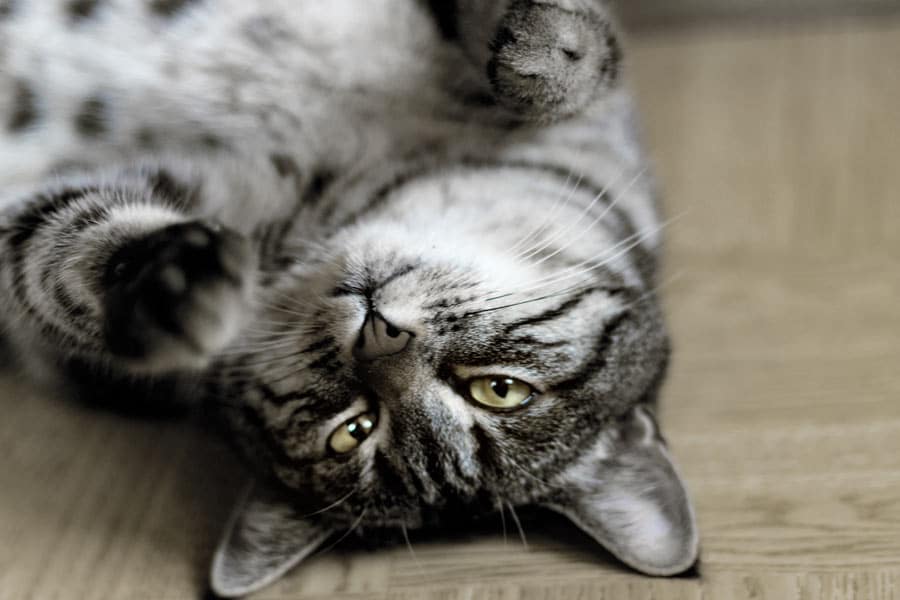
Choosing a Quality Senior Cat Food
Now that you know the basics about cat nutrition and the specifics of senior cat nutrition you have the information you need to choose a high-quality senior cat food. Even with all of this information at your disposal, however, it can be difficult to sift through the unlimited array of options when it comes to commercial cat foods. To help you make your choice, there are three main parts of the cat food label that you should pay attention to: the AAFCO statement of nutritional adequacy, the guaranteed analysis, and the ingredients list.
- AAFCO Statement – The American Association of Feed Control Officials (AAFCO) is responsible for regulating the production and sale of pet foods and animal feed. AAFCO has created nutrient profiles for dogs and cats in various life stages (maintenance for adults and growth/reproduction for kittens and pregnant/lactating cats). They evaluate pet food products before they are marketed to ensure that they meet the minimum nutritional requirements for the pet in the specific life stage. If the product meets these requirements, the label will carry a statement like the following, “[Product Name] is formulated to meet the nutritional levels established by the AAFCO Cat Food Nutrient Profiles”. If the senior cat food formula you are looking at doesn’t carry this statement, choose another product.
- Guaranteed Analysis – In addition to ensuring the pet foods meet minimum nutritional standards, AAFCO also requires them to carry a list of the values for four key nutrients: crude protein, crude fat, crude fiber, and moisture. These values are calculated from the ingredients used in the product and they can be used to compare and contrast similar products. Keep in mind that these values are calculated on a dry matter basis – you will have to do some calculations to convert the values for wet food products if you want to compare them to dry foods. Remember, the minimum protein requirement for adult cats is 26% (though 35% to 45% is ideal) and the minimum fat requirement is 5%. As for fiber, you want to see a fairly low number – no more than 3% is ideal.
- Ingredients List – The final place you need to look on the pet food package is the ingredients list. This is organized in descending order by volume, so the ingredients at the top of the list are present in the highest volume. Keep in mind, however, that some ingredients contain a lot of moisture which means that the actual volume for that ingredient could be much lower after the product is cooked. This is true for fresh meats like chicken which contain up to 80% moisture – chicken meal, on the other hand, has already been cooked down to a moisture level of 10% so it contains as much as 4 times the protein per volume as fresh chicken.
When reviewing the ingredients list for senior cat food you want to see a quality animal protein listed first with digestible carbohydrates, animal fats, and supplementary protein sources featured near the top of the list. Avoid any products that list a carbohydrate first, especially products made with low-quality fillers like corn, wheat, and soy ingredients. Look for other beneficial ingredients like probiotics (usually dried fermentation products) and chelated minerals in the ingredients list as well. If the list is full of ingredients you can’t identify or if the lower quality ingredients are at the top of the list, avoid the product and choose something else.
Recommended Cat Foods For Older Cats
Unless you are an animal nutritionist, understanding the ins and outs of specialized nutrition for senior cats can be difficult. To make sure your older cat gets the nutrients he needs in the right amount, consider switching him to a high-quality commercial diet formulated for senior cats. To help you get started in finding one of these products, consider the top-rated brands below which offer senior cat food formulas:
Best Dry Food For Senior Cats
Nutro Indoor Senior Cat Food
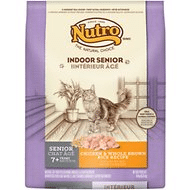
Nutro is an all-natural pet food company which offers a wide array for formulas for both dogs and cats. The Nutro pet food company was founded in 1926 and they have been leaders in the pet nutrition industry from day one. This company follows the highest standards for quality and safety, and all of their products are made with fresh, wholesome ingredients. Nutro uses real animal proteins like deboned chicken as the first ingredient in every formula as well as wholesome whole grains and natural fibers. Each and every formula is designed to provide optimal levels of key nutrients like omega fatty acids, DHA, antioxidants, calcium, glucosamine, and chondroitin. In their line of cat food products, Nutro offers recipes for kittens, adults, and senior cats as well as formulas that are designed for cats with sensitivity to grains or problems with hairballs.
The Nutro pet food company offers a small assortment of formulas that are specifically designed for older cats. There are two dry food formulas for indoor seniors – Chicken & Whole Brown Rice and White Fish & Whole Brown Rice. The first of these is made with chicken and chicken meal to ensure proper protein levels to maintain your cat’s lean muscle mass. It is also made with digestible whole brown rice and other natural fibers. The second formula features quality ingredients like white fish and chicken meal as well as whole brown rice and whole grain oatmeal. Both of these formulas are designed to help boost energy, reduce hairballs, support regular digestion, and maintain a healthy weight. The two wet food options Nutro offers for senior cats are Soft Loaf Chicken Recipe and Soft Loaf Cod Recipe. These foods are designed with a texture that is easy for older cats to chew and swallow, plus they are high in protein and low in carbohydrates.
NutriSource Senior/Weight Management Cat
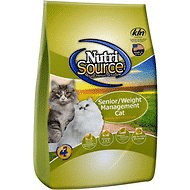
The NutriSource brand is owned and manufactured by the KLN family of brands which also owns and operates PureVita Pet Foods. The original maker of NutriSource, Tuffy Pet Foods, began more than fifty years ago with the goal of providing high-quality pet food products for dogs and cats in all life stages. The company was founded in 1947 and over the years became known for producing super premium pet food recipes as well as a holistic line of products, the PureVita pet food brand. In 2009, the company added a line of organic pet foods as well, called Natural Planet Organics. Today, NutriSource offers a wide selection of dry and wet foods for both dogs and cats. Within their line of cat food products there are two grain-free kibbles, three original dry recipes, and three canned food formulas.
NutriSource offers a variety of cat food products for cats in all life stages but they also offer one recipe that is specifically designed for older cats. The NutriSource Senior/Weight Management dry food formula is made with all-natural ingredients in a flavor-rich recipe that provides complete and balanced nutrition for older cats. This recipe is made with chicken meal as the first ingredient, a highly concentrated source of animal protein – it also contains fish meal and dried egg product as supplementary protein sources. The next three ingredients are brown rice, barley, and oatmeal which are all considered digestible carbohydrates for cats when properly cooked. This formula contains chicken fat and sunflower oil to provide essential fatty acids and it is supplemented with dried fermentation products to support healthy digestion. There are also chelated minerals which have been chemically bonded to protein molecules, making them easier for your senior cat’s body to digest and absorb. This formula is approved by AAFCO for adult cats.
Blue Buffalo Health Aging
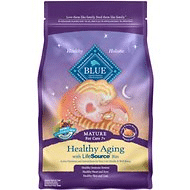
The Blue Buffalo Company has become a household name in the pet food industry and it has a reputation for producing high-quality products for both dogs and cats. Blue Buffalo understands that the quality of a pet’s nutrition is what has the greatest impact on his general health and wellbeing – this is why they use only the finest natural ingredients in their products. Each one of Blue Buffalo’s formulas is designed to provide balanced, holistic nutrition for cats and dogs. Their all-natural formulas feature premium proteins like fresh meat, poultry, and fish as well as quality animal fats, digestible carbohydrates, and fresh fruits and vegetables. Blue Buffalo offers four different product lines for cats and dogs – the Blue line of all-natural diets, the Freedom line of grain-free foods, the Basics line of Limited Ingredient Diets, and the Wilderness line of protein-rich formulas.
Blue Buffalo offers eight different products that are specially formulated to meet the nutritional requirements of senior cats. Within the Blue line of natural diets there are two formulas, both featuring Chicken and Brown Rice as the main ingredients. The Blue Freedom line includes one grain-free recipe for mature indoor cats and the Blue Basics line includes one grain-free turkey recipe for mature cats. In the Blue Wilderness line, there is a single senior cat food recipe made with fresh chicken as well as chicken meal and turkey meal. All of these formulas are free from corn, wheat, and soy ingredients and they are not made with any artificial additives. On top of these options, Blue Buffalo offers three Natural Veterinary Diets for older cats with specific medical problems. There is one for cats with food intolerances, one for gastrointestinal support, and one for urinary care and weight management.
Fromm Gold Mature Cat
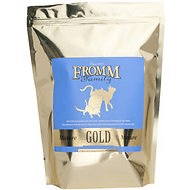
The Fromm Family Pet Food Company was founded in 1904 by the four Fromm brothers and it continues to be a family-owned and –operated company today. From the very start, Fromm Family Foods was dedicated to quality and they have also been innovators in the field of veterinary research. In 1939, the company released the first canine distemper vaccine and over the next decade they pioneered the cooking process that is still used today to make dry pet foods. Fromm offers three different product lines of pet foods – the Classic line of adult and mature adult dog foods, the Gold line of premium pet foods, and the Four-Star line of gourmet products. The Gold line is particularly popular as a source of holistic nutrition for dogs and cats while the Four-Star line is designed for use in rotational diets.
If you are looking for a commercial senior cat food that will meet your older cat’s needs without sacrificing quality or flavor, the Mature Gold formula from Fromm Family Foods is a great option. This formula is designed to meet the calorie needs of less active adults and senior cats, helping them to maintain a healthy weight as they age. Mature Gold features fresh duck and chicken meal as the top two ingredients which ensures that the product is loaded with quality protein. For digestible carbohydrates, this formula includes pearled barley, white rice, and potatoes. It also contains supplementary protein sources like fresh chicken, whole egg, and chicken liver. Mature Gold contains a minimum of 30% protein, a minimum of 10% fat, and a maximum of 3.5% fiber which is ideal for senior cats. It is also supplemented with vitamins, minerals, and probiotics for balanced nutrition.
Wellness Complete Health Senior Health
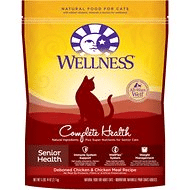
The Wellness Company is known for its holistic pet food products for both dogs and cats. This pet food company offers their customers the “Wellness Difference” which promises that each and every formula is designed with natural, wholesome ingredients boosted with super nutrients like omega fatty acids, antioxidants, prebiotics, and probiotics. Wellness never uses artificial colors, flavors, or other additives and their recipes are free from inexpensive fillers and by-product meals. Wellness follows strict standards for safety, guaranteeing that all of their ingredients and their production practices are of the highest quality. The company sources their ingredients from trustworthy suppliers and they give back to the community through donations of food and money through the WellPet Foundation.
The Wellness pet food company offers four different product lines of cat formulas: Complete Health, CORE, Solutions, and Trufood. The Complete Health line of products includes seven different formulas designed to support the complete health and wellness of cats in all life stages. This line includes one kitten formula, two adult formulas, two indoor cat formulas, one healthy weight formula, and one senior health formula. The Complete Health Senior Health Deboned Chicken & Chicken Meal recipe is packed with lean protein from fresh chicken and chicken meal to support your cat’s lean muscle mass but it contains 8% fewer calories than the original adult formula to prevent weight gain. This recipe is supplemented with glucosamine and chondroitin to protect your cat’s aging joints as well as specific levels of fat and fiber for optimal senior cat nutrition.
The quality of your cat’s diet is the primary factor in determining the length and quality of his life. If you take the time to learn the basics about cat nutrition you will have a firm foundation of knowledge to support your selection of a commercial cat food product. It is important to remember, however, that the nutritional needs of cats change as they age – the formulation of nutrients they need as kittens is different from what they need as adults and again as senior cats. To make sure your senior cat gets the nutrition he needs, start your shopping with some of the top-rated brands reviewed above.

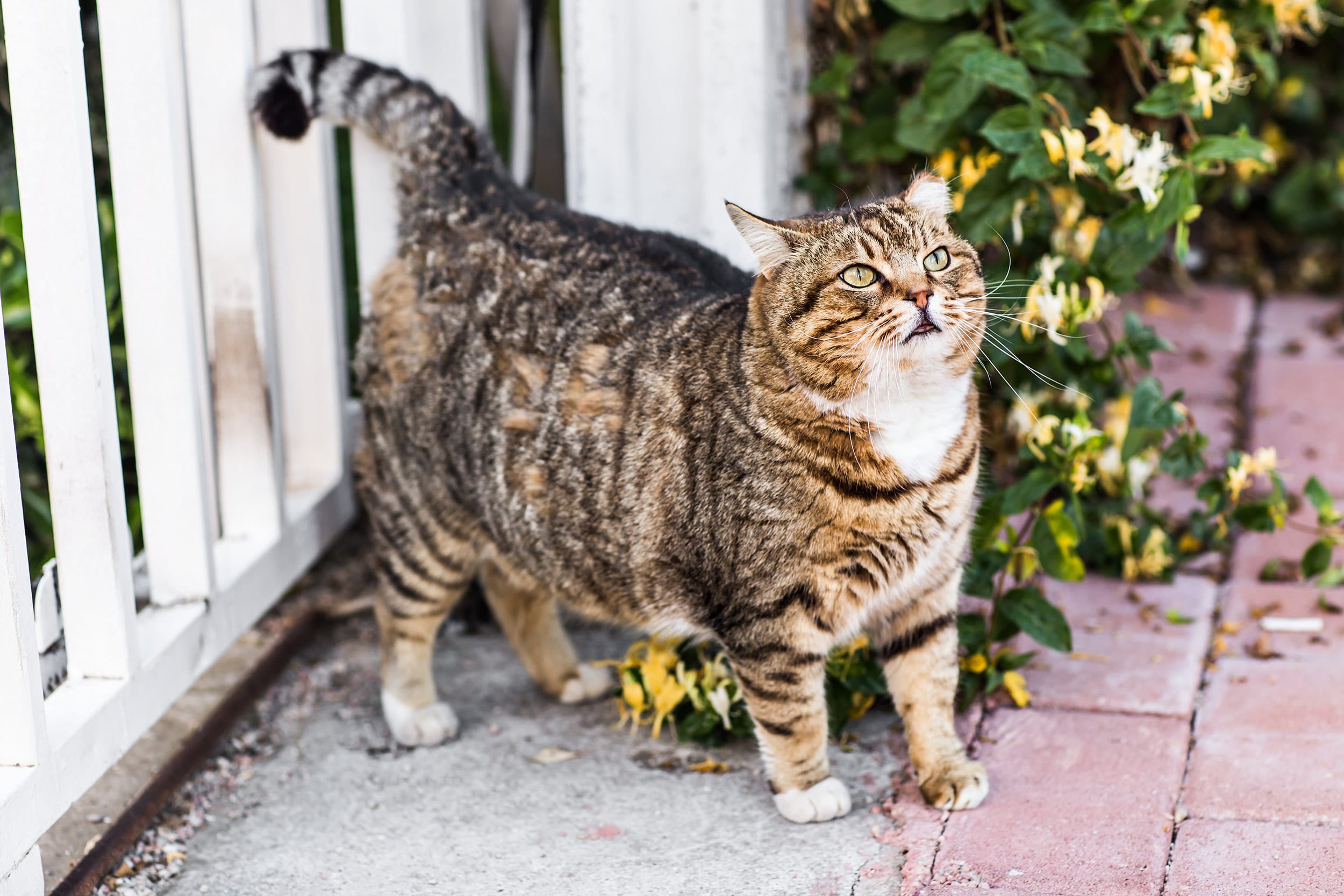






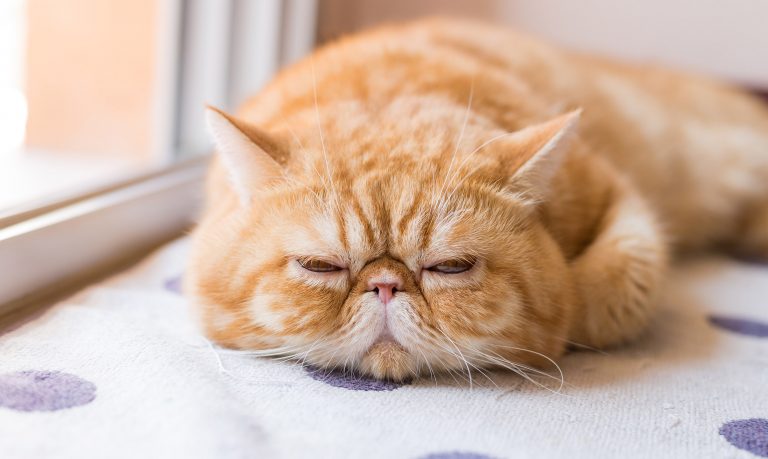
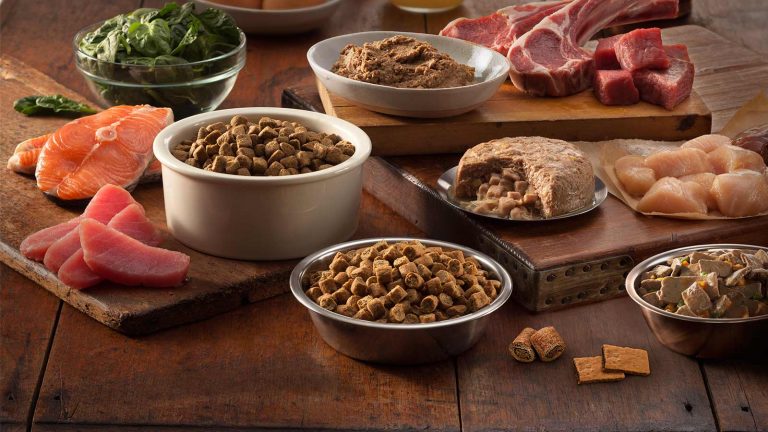
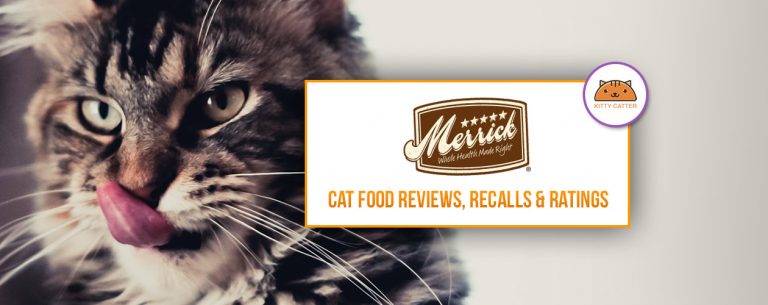
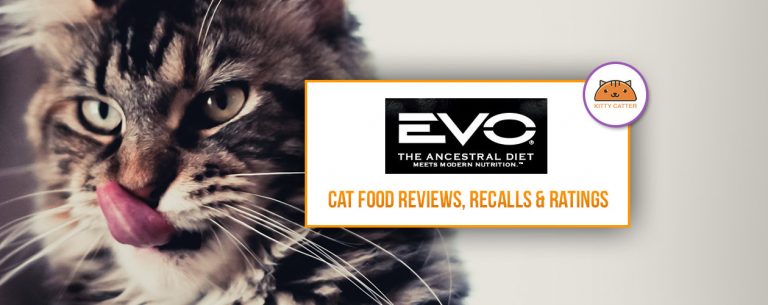
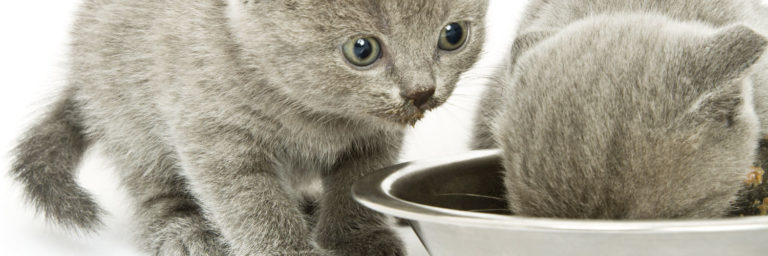
i have several senior cats..and i see that two of them has loss of body mass..the food i feed is canidae pure limited ingredients chicken..can food..and it says it has 9% protein so how do i figure out how much of the protein my cat is getting and how much food does she need to eat to get a good amount of the protein..does that 9% protein mean thats whats in the whole can?its a 13oz can